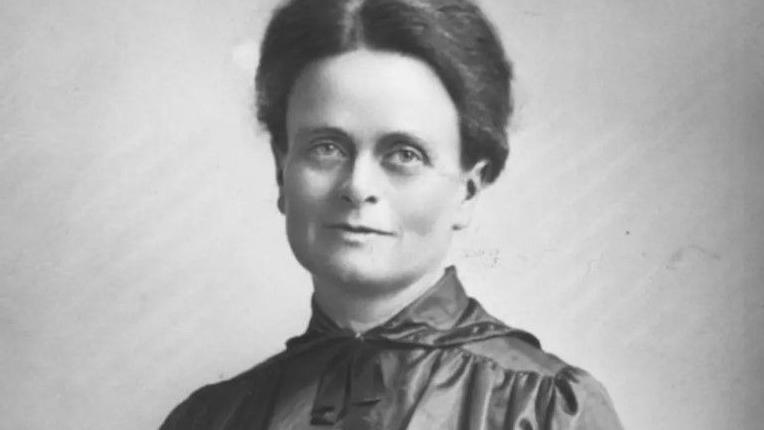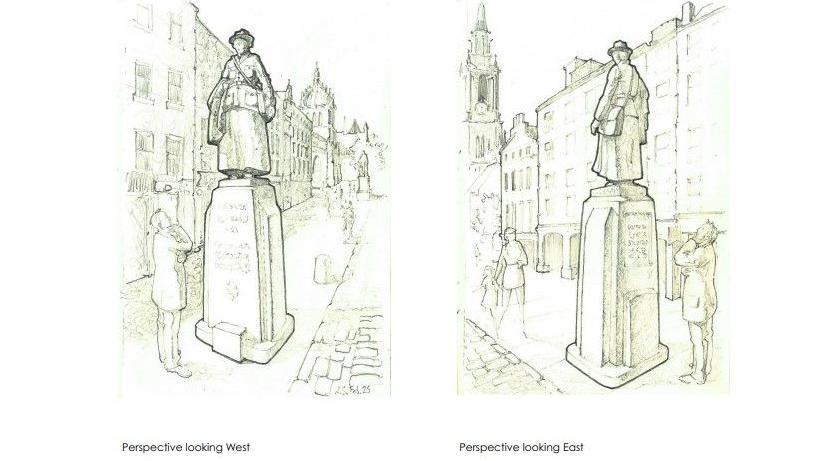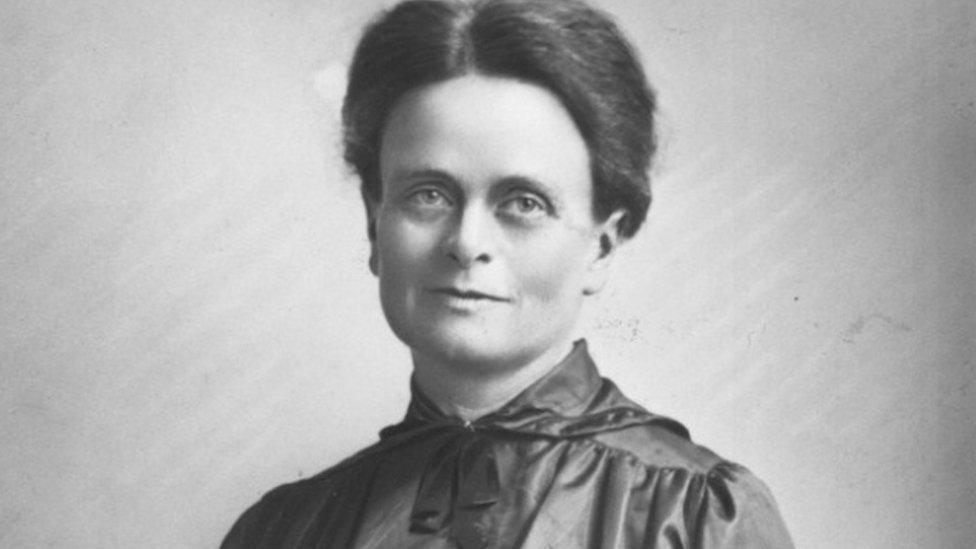First statue of woman on Royal Mile set to be approved

Dr Elsie Inglis established 17 Scottish Women's Hospitals across Europe during World War One
- Published
A controversial statue of pioneering doctor Dr Elsie Inglis is being recommended for approval in Edinburgh by council officials.
The statue, by royal sculptor Alexander Stoddart, will be the first of a woman on the historic Royal Mile.
Dr Inglis established maternity services for poor women in Edinburgh before setting up all-women hospitals that supported Britain's allies during World War One.
Her descendants said they were "extremely honoured and appreciative" of the statue but some campaigners have spoken out against the plans.
They claim the statue should have been designed by a woman and say there should be a plaque explaining her family wealth is linked to the slave trade.
They also object to the fact that the statue shows Dr Inglis is wearing her uniform for the Scottish Women's Hospitals for Foreign Service - rather than showing her links to her work in Edinburgh.
City of Edinburgh Council has received 237 messages of objection to the statue, as well as 408 in support.

How the Dr Elsie Inglis statue will look.
Dr Inglis, who was born to a wealthy family in 1864, was also a prominent campaigner for votes of women and it was through the suffrage movement that she began to raise money to send out female doctors, nurses, orderlies and drivers to the front line.
Elsie raised the equivalent of £53m in today's money and over the course of the war set up 14 hospitals, staffed by 1,500 women who volunteered from all over Scotland, and later from New Zealand, Australia and Canada.
The female war medic who refused to 'go home and sit still'
- Published26 November 2017
Her family told BBC Scotland News the statue plans were a "fitting tribute" to their ancestor and defended the choice of uniform.
"It is difficult to do justice to the significance of the Scottish Women's Hospitals for Foreign Service to Dr Elsie Inglis, what it meant to her, to all who served, and their descendants," they said.
"The current proposal for a statue, in which she is wearing the medical uniform of which she was most proud, would be a fitting tribute to Dr Elsie Inglis and the massive humanitarian efforts of the Scottish Women's Hospital's in World War One and a display of Scotland's pride.
"Recognising the significance of this uniform in no way diminishes her pioneering work in Edinburgh before the war, and we understand that her story has meant - and continues to mean - different things to different people."
The statue, if it gets planning permission, will be placed at New Assembly Close opposite the commemorative plaque at 219 High Street where Dr Inglis opened The Hospice maternity hospital in 1904.
Campaigners are planning to launch a breastfeeding protest against the statue ahead of the meeting of the development management sub committee at Edinburgh City Chambers on Wednesday.
Natasha Phoenix, who runs the Elsie On The Mile group, said they would be holding the protest "to highlight the importance of women's history and retaining women's historical sites".
"This is a women's historical site but Elsie is going to be shown in her military uniform in service to war, not in service to maternity when she's known for maternity care.
"There's no nod to the Elsie Inglis hospital or the Elsie's babies, people are really upset. She's known as the maternity doctor so that's why we will be making this breastfeeding protest."
"It actually needs a plaque of reparation and an explanation about the Inglis' wealth coming from profit from enslaved people," she added.
"It also would need to be retrospectively mentioned that Elsie benefited from colonialism and was a liberal imperialist."
Ms Phoenix was one of the sculptors who was working on an entry to an open competition to design the statue.
However, the competition was controversially suspended and Alexander Stoddart - the King's Sculptor in Ordinary in Scotland - was handed the job.
- Published23 October 2022

- Published19 October 2022
